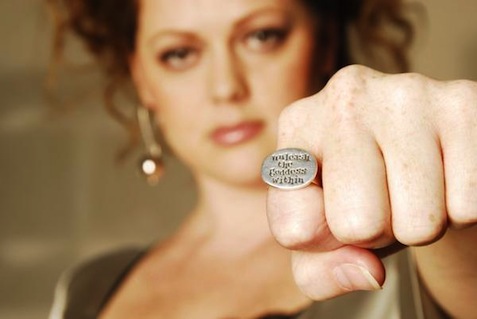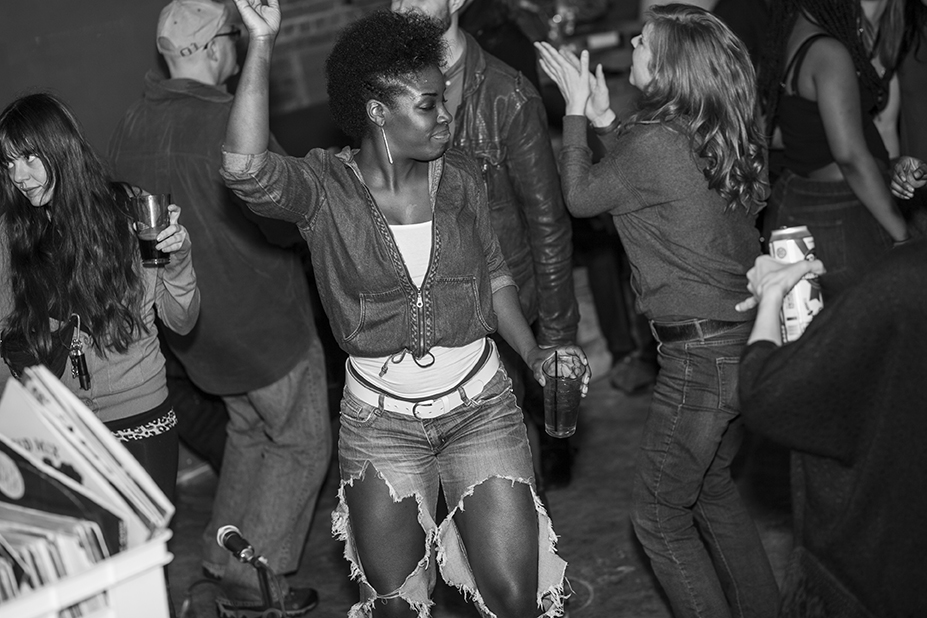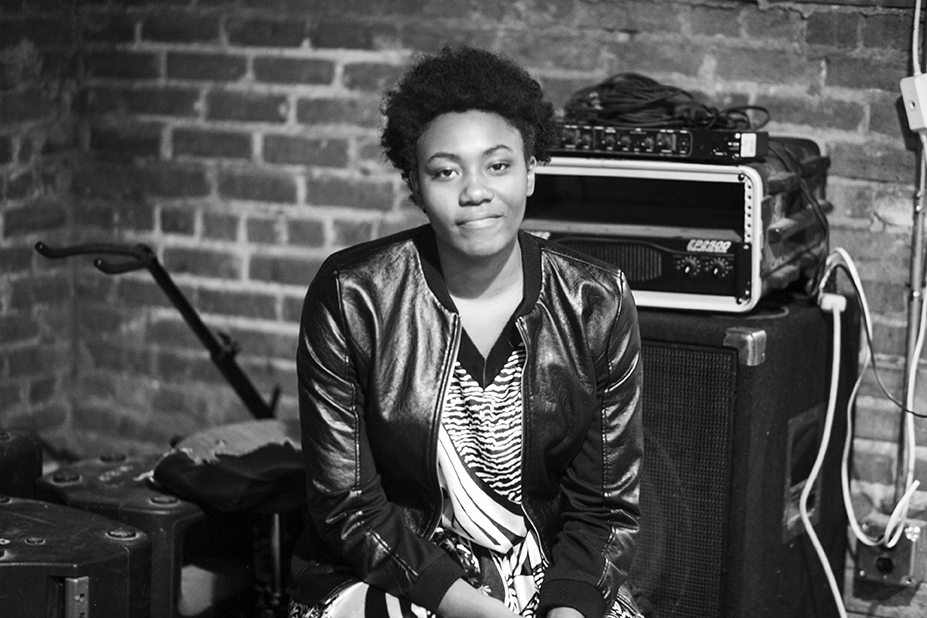Misogyny: Hip-Hop’s Problem Child
Rob Callahan talks with three women in the local hip-hop scene — Desdamona, Royalty, and JaysoCreative — in the second of two candid conversations about the persistent obstacles facing women working in the music business.

Last time we approached the topic of misogyny in the music scene, we checked in with rapper Kat Fox about the general and specific ways she’s seen women treated during her time as a musician. But it was clear from the beginning of that conversation that her experiences were just the tip of the proverbial iceberg. It isn’t as though Fox is the only woman who ever had to confront a bloke in the scene. It’s just that this was the first time a woman said “yes” after I asked her to interview about it.
She wasn’t the last, though. In fact, three other emcees, with three more perspectives on the issues, followed Fox’s lead and agreed to talk with me a bit about where they find themselves in the broader sausage party we call the music industry. Veteran spoken word artist Desdamona, Twin-Ports rapper Royalty, and North Minneapolis emcee JaysoCreative have all looked sexism in the eye and dared it to do its worst, and they’ve all come away with stories of their own to tell.

“…things can get real disrespectful or misconstrued.”
Royalty
Royalty, another rapper hailing from the twin ports of Duluth/Superior, isn’t at all squeamish about taking a hard look at the independent hip-hop scene, reflecting on its abundantly male makeup, and in defining her role in it. “Since a majority of the hip-hop local musicians make up the male identity, in my town, I’ll always be exposed to working with more men then women,” she says, “but I’m seeking to change that.” She’s quick to note that she spends the majority of her time as a working rapper among men, and that unwanted advances have always been a concern, pointing to a time that a male colleague started hitting on her. “I checked him and told him the inappropriateness of his conversation,” she says, “and that whatever he assumed we would get into ain’t gone happen.”
“Men can be the type to think if you’re nice to them, then you’re attracted to them,” she adds. “Then it all falls under a need. They’re gathering information in their minds that, ‘She has a need I can provide, and is attracted to me.’ With this miscommunication, things can get real disrespectful or misconstrued.” A.k.a., Nice Guy Syndrome. When acting like a friend is merely a ruse: a guy views his nice deeds as an ongoing and indirect effort to motivate a particular gal pal toward romance. Royalty doesn’t see it as an unavoidable hazard of working with men, though. In fact, off the top of her head, she can compile a decent list of male artists who’ve never even shown a hint of speculating about the merest possibility of Nice Guying her. Still, it happens. “This man,” she says of the aforementioned guy, “from many years of knowing me, was probably waiting on his moment, but at the same time, knew I was married.”
“I carry myself like a wife should, and like a young loyal lady,” she adds, noting that her own swift response, shooting him down, helped stave off other potential advances. “The word of his failure to execute his mission got around fast. And honestly, no other man has tried it with me since. It’s all about how you carry yourself and how important you make sure they know your music is to you. And I want to be treated and labeled as an artist.”
We may never get to live and create art in a world devoid of artists trying to bang other artists who aren’t interested in banging/being banged. That kind of behavior, wherever it falls on the spectrum from misunderstanding to complete disrespect, may be generations away from fading. Still, individual efforts to push it closer to its end shouldn’t go unnoticed or unacknowledged. Some of those efforts are broad. Others ripple out from smaller changes. “I demand my respect with how I pay attention to my surroundings as well,” she says, “because [predatory men], too, are paying attention. They are looking to where your attentions is. Eyes and body language play a big roll in how a male will treat you.”
“What would hip-hop look like if women were the dominant force?”
Desdamona
NewNowNext once called Minneapolis “the place to be if you’re a female in the hip-hop community.” That was in reference to B-Girl Be, a festival celebrating participation by female emcees, dancers, and graffiti artists. The noted article was penned almost a decade ago, and there’s an inherent irony to be found in it now, looking back through this lens. While I’m talking to Desdamona about her new album, No Man’s Land, I ask if it was in any way a response to the sausaginess of the local scene, and her experience with B-Girl Be came almost immediately to her mind. Particularly, “some of the responses I got about the festival from men in the community, asking if they could come or making comments about the sexual orientation of women involved, or coming up with whatever excuse they could find to not come.” To her, it was a reminder that the world is warped and presented back to itself through a lens of male need, male desire, and male expectations. “So when presented with something not clearly directed to them,” she says, “they recognize it right away and the confirmation that it is not for them is immediate.”
“I don’t usually sit around writing and thinking about my audience all the time,” she adds. “The beginning process is just to write and get ideas, but I began playing with being more intentional about who I might be talking to and how I should approach it. It really began as an experiment.”
“As the project developed, I started thinking of other things,” she says, tracing its path from initial concept to concept album, “like what would hip-hop look like if women were the dominant force? Why do women feel comfortable participating in a male dominated art-form, but it seems men don’t feel comfortable participating in a woman-dominated situation?”
“I started to ask myself, what is a record made with women in mind? What is a record made with men in mind? Can you make a record with men and women in mind?” These questions dated back even farther, to an old interview she did with Mark Wheat during the Current’s early days, in which he commented to the effect that a previous album sounded like it was meant for female listeners. “Of course, I write about being a woman because I’m a woman, but I don’t think it means that men can’t relate.”
No Man’s Land comes complete with a double-sided fold-out, a guide to the universe in which it takes place, and selected in-universe nursery rhymes which help build the world in the listener’s mind. “It [also] starts off with DJ Blackfish Gold, who gives you an idea of what is happening in the world of No Man’s Land, and she returns two more times through the project,” says Desdamona. “I thought a lot about the idea of creating a multi-sensory experience, and how I might do that with an album,” she says. “The cover of the album is embossed, so the first sense you experience with NML is touch, then of course sound, and sight comes in when reading the nursery rhymes and looking at the illustrations. Maybe these elements won’t be noticed by the listeners — it will be interesting to hear people’s response to the project as a whole.”

“Seems like nobody can ever believe that a girl can rap, or spit, or say anything that a man can.”
JaysoCreative
“I’ll do a show and somebody will come up to me and be like, ‘That was dope,’” says JaysoCreative, from North Minneapolis. The compliment, however, can be backhanded. She’s quick to note that it’s often followed by questions like, “Did you write that?”
“I’ll be like, ‘No, I practiced for hours to perfect somebody else’s words.’ It’s a weird thing that people can’t believe that a woman would be able to say the things that she says. Seems like nobody can ever believe that a girl can rap, or spit, or say anything that a man can. Better than a man.”
“So, it happens quite often,” she admits, “but I’m finding that the more I dive into this world, and the more I make myself more sure of who I am, then the less I’m seeing of it.”
“We all experience things differently, men and women,” she says. “I have a lot of guy friends who make music. I see how they get treated, and I see how I get treated, and it’s not the same.” In JaysoCreative’s experience, it’s not just the unearned doubt and aspersions she sees. It’s the advances, too, along with an uphill struggle against various exploitive endeavors. “I make it very clear that I’m here to work. I’ve definitely had some people, it was very obvious that it wasn’t about music. Or, it was about them and their name getting better at expense to my name—not exactly a sexual thing, but a corrupt one, a rape. Rape of my career.”
“The assumptions about you and your male collaborators will probably never end. I don’t want to say ‘get over it,’ but rather use it as fuel for your process.”
Desdamona
Here’s the thing, though. You don’t go once more unto the breach, then once more again, and once more still, and so on, without picking up a trick or two to keep you going. For some, it’s a matter of finding strength, whether that’s in numbers or in one’s self. For others, it’s the use of art to imagine a world where the troubling dynamic is flipped, or doesn’t exist at all. It’s being a part of the big picture, or being persistent, or being prepared. “Me coming in, though,” says JaysoCreative, “people are super surprised that I can do what I can do. If I’m prepared next to my male counterparts, people lose their shit over me. Like, they just go goo-goo eyes, like they’ve never seen it before. Sometimes I think they overlook the male talent,” she adds. “Everybody perceives things differently.”
Says Desdamona, “The best advice I can give in this moment is to say that we have to work together more often, and I don’t mean just in the artistic realm. There needs to be a sisterhood of hip-hop — including performers, promoters, organizers — where we can help each other. The idea of being the singular woman in a crew has died, so our uniqueness is no longer tied to us being women,but to what it is we have to offer creatively.”
“The assumptions about you and your male collaborators will probably never end,” she adds, “I don’t want to say ‘get over it,’ but rather use it as fuel for your process.”
Royalty is on the same page. “I’m a musician,” she says. “I write and perform. But my perception from living in this town is that I see packs, groups or record labels. We women haven’t figured that out yet. We are always too busy competing, trying to be the first and only. We don’t understand that what the [packs] are doing is working! …An instrument is made up of many items to create a melody or sound. Guitar; no string, no sound. Piano; no key, no sound.”
“Being a part of a crew gives you faster, affordable, or free access than a musician, like me, who seeks the same atmosphere. Unless a musician can perform all these jobs [alone],” she says, “getting things finished and products out on the streets is hard. And, in my case, slow. There are many male artists with a crew, and more male hip-hop crews versus female artists with a crew, or female hip-hop crews.”
“My music don’t stop,” she concludes, “I’m a one-women team, but I wouldn’t mind a hype man/chick. Wink, wink!”
Related information: You can hear Desdamona perform at the Duluth Block Party on Sept. 9. JaysoCreative is co-hosting a new podcast, OnUsual Radio.